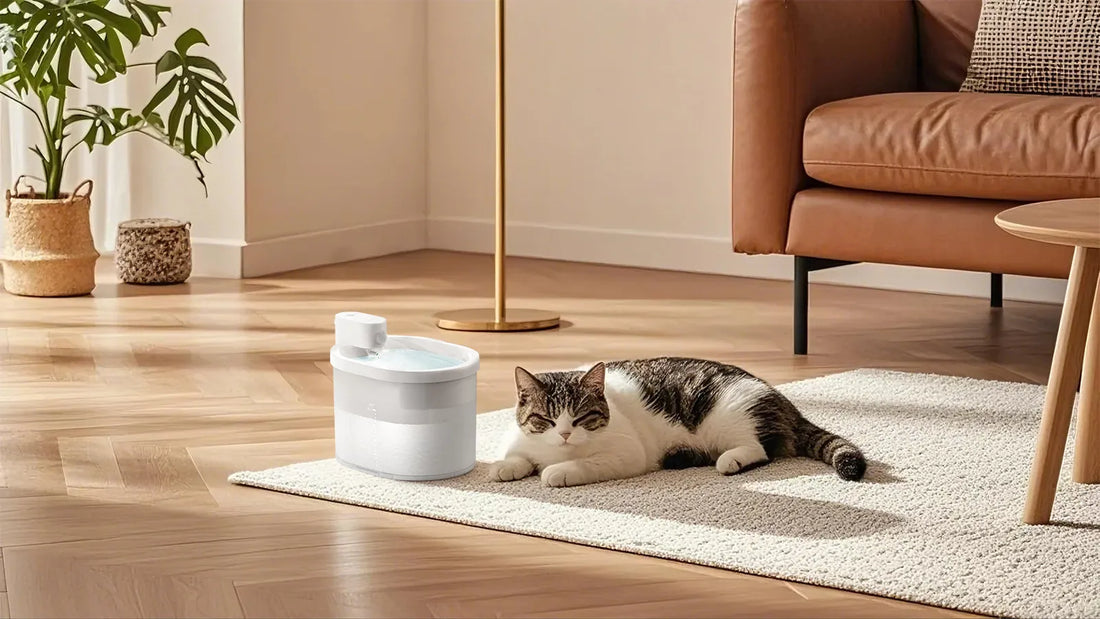Have you ever watched your cat bat a piece of kibble across the floor or paw at their wet food before eating it? If so, you're not alone. Many cat owners have observed this curious behavior and wondered, 'Why does my cat play with his food?' The answer lies in a combination of instinct, biology, and environmental factors. In this article, we'll dive deep into the reasons behind this fascinating feline habit and provide insights to help you better understand your furry friend.
Instinctual Hunting Behavior
Cats are natural hunters, and their playful interaction with food often stems from their predatory instincts. In the wild, cats hunt small prey like mice, birds, and insects. Playing with their food mimics the way they would handle prey in nature. By batting, pouncing, and tossing their food, your cat is practicing their hunting skills. This behavior is especially common in younger cats or those with a strong hunting drive.
Exploring Texture and Taste
Another reason your cat might play with their food is to explore its texture and taste. Cats rely heavily on their senses, and their paws are highly sensitive. By touching their food, they can gather information about its consistency and temperature. Additionally, some cats may play with their food to enhance the flavor or make it more appealing before eating.
Boredom and Mental Stimulation
Indoor cats, in particular, may play with their food out of boredom. Without the stimulation of outdoor environments, cats need other ways to keep their minds active. Playing with food can provide mental and physical enrichment, turning mealtime into a fun activity. If your cat seems to play with their food excessively, it might be a sign that they need more interactive toys or playtime to keep them engaged.
Environmental Factors
The environment in which your cat eats can also influence their behavior. If their food bowl is placed in a noisy or high-traffic area, your cat might feel stressed or distracted, leading them to play with their food instead of eating it. Similarly, the type of bowl or dish you use can affect their eating habits. Some cats prefer shallow dishes that allow them to see their food clearly, while others may dislike the feel of certain materials.
Health and Dietary Considerations
In some cases, playing with food can be a sign of underlying health or dietary issues. Cats with dental problems, for example, might paw at their food to make it easier to eat. If your cat suddenly starts playing with their food more than usual, it's worth consulting your veterinarian to rule out any medical concerns. Additionally, your cat's diet might not be meeting their nutritional needs, prompting them to interact with their food in unusual ways.
How to Address Food-Playing Behavior
If your cat's food-playing habit is causing mess or concern, there are steps you can take to address it. Providing interactive feeding toys or puzzle feeders can channel their playful energy into a more productive activity. Ensuring a calm and quiet eating environment can also help your cat focus on their meal. Experimenting with different food textures and types might make mealtime more appealing and reduce the need for play.
Understanding why your cat plays with their food can deepen your bond and help you create a more enriching environment for them. Whether it's a nod to their wild ancestry or a way to keep boredom at bay, this behavior is a natural part of being a cat. By observing your cat's habits and making small adjustments, you can ensure they stay happy, healthy, and well-fed. So the next time you see your cat batting their kibble, you'll know it's just another day in the life of a curious and playful feline.













